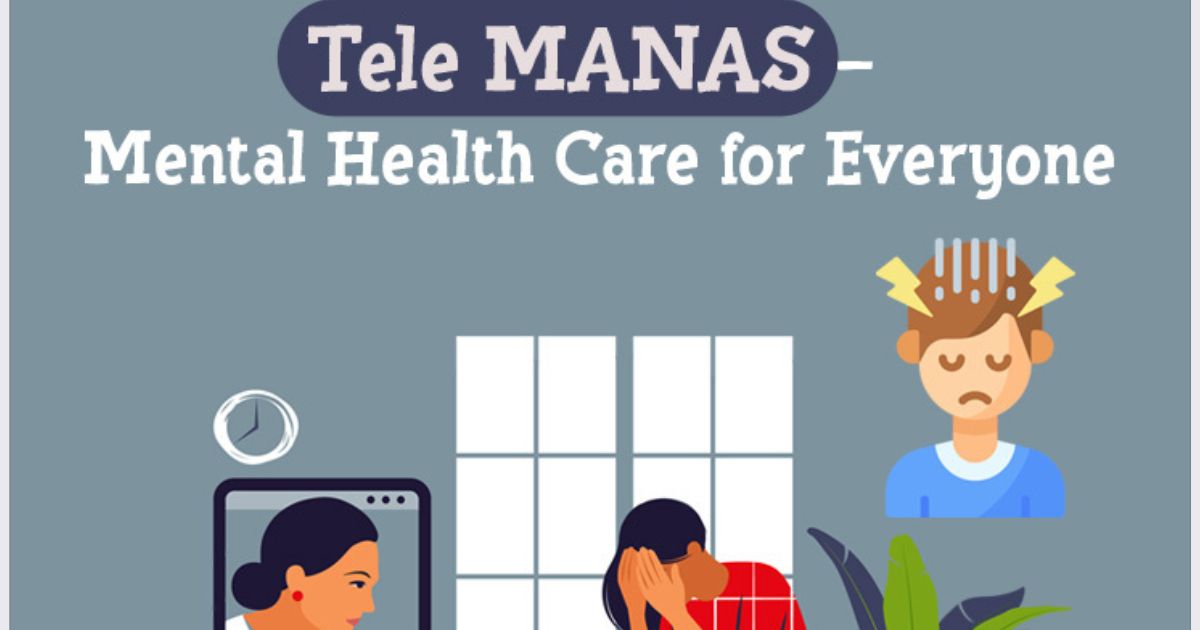Tele-Mental Health Assistance and Networking Across States, the Tele-MANAS program has made significant strides in providing counseling services to over 350,000 individuals.
Mansukh Mandaviya announced these accomplishments and emphasized the importance of extending mental health care benefits to all parts of the country. The National Mental Health Survey in 2015-16 revealed that approximately 10% of the population is affected by mental health issues.
As of World Mental Health Day this year, “Tele-Manas Seva,” a mental health helpline launched last year, has extended its reach and made a significant impact.
With over 350,000 individuals benefiting from its counseling services and 2,000 ongoing cases managed through 44 Tele-Manas Cells, this initiative has emerged as a lifeline for many. Every day, the helpline fields over 1,000 calls, underlining its essential role in supporting mental health.
Tele-MANAS Program – An Integral Initiative
The Indian government remains steadfast in its commitment to bolstering the country’s mental health care infrastructure. Currently, there are 47 government mental health hospitals, three of which are central mental health institutions situated in Bengaluru, Ranchi, and Tejaspur.
Moreover, many other central and state government hospitals have integrated psychiatry departments, ensuring that individuals across various regions have access to mental health services.
These services are now also an integral part of the newly established All India Institute of Medical Sciences (AIIMS), expanding the reach of mental health care.
In order to enhance access and coverage of mental health care services, the National Mental Health Program has embarked on district-level activities across 743 districts spanning all 36 states and union territories.
This comprehensive initiative is designed to reach and assist individuals in diverse geographic locations, addressing their mental health needs.
Furthermore, the government has taken significant steps to tackle mental health issues among children and women. These efforts are channeled through various programs, such as the National Child Health Programme, National Adolescent Health Program, and RCH programs. These initiatives prioritize the mental health and well-being of vulnerable groups.
The Ayushman Bharat Health and Wellness Centres, a key component of India’s healthcare infrastructure, are contributing to the integration of mental health services with primary healthcare services.
They have prioritized mental health, neurological disorders, and substance use disorders as essential service areas. By unifying these services, the government aims to provide comprehensive mental health care to individuals in need.
With an unwavering commitment to improving mental health services and access, India is striving to create a more inclusive and supportive mental health care ecosystem. The Tele-Manas initiative, in particular, stands as a testament to the nation’s dedication to addressing mental health challenges and fostering overall well-being among its citizens.
Through these concerted efforts, India is progressively expanding its mental health care reach, recognizing the significance of mental health on World Mental Health Day and every day thereafter.

